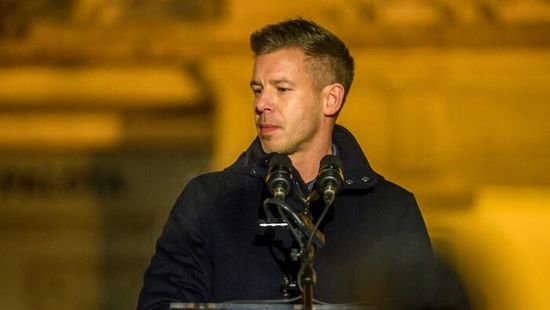Magyar Péter foghatja a fejét: ezért nem tudott növekedni a Tisza Párt népszerűsége

A szakértők szerint olyasmit igyekeztek vitorlájukba fogni, amiből nagyon nem jött össze a politikai haszonszerzés.

Two western states voted yesterday. The results in wine-producing Rhineland-Palatinate were interesting but unremarkable.
„Foreign ministers are usually among Germany’s most popular politicians; Mr Westerwelle is among the least. He may be ousted as the FDP’s leader, by the party’s convention in May if not before. The FDP’s trauma will further unsettle Mrs Merkel's Christian-liberal coalition, which has so far failed to find the clear sense of purpose that voters had expected from an alliance of like-minded partners. There is little immediate threat to Mrs Merkel’s hold on power, in part because the CDU has no leaders with the stature to challenge her. But she must now finally explain to voters what her government is for.
Yesterday was sobering for other parties as well. In Rhineland-Palatinate the SPD’s share of the vote plunged from 46% to 36%. Mr Beck will continue to govern, but in a coalition with the triumphant Greens rather than with an absolute majority. In Baden-Württemberg the SPD achieved its goal of toppling Mr Mappus but its 23% share of the vote was its lowest yet in the state (ironically it will now probably enter government as the Greens' junior coalition partner). The ex-communist Left Party, which is strong in eastern Germany and had been making inroads in the west, failed to enter either state parliament. Its western ascent has, for now, been stopped. Only the Greens, the progeny of youthful protest that once styled themselves an anti-party party, have anything to celebrate.
Baden-Württemberg’s incoming Green premier, Winfried Kretschmann, is an avuncular pragmatist well suited to the state’s conservative temperament. A former schoolteacher (of chemistry, biology and ethics), he is a pillar of the Catholic church. A leader of the Greens' realist wing, he cares as much about fiscal discipline as he does about renewable energy. He now has a chance to prove to Germany that greenery need not be the enemy of growth, innovation and employment. If he fails, the Greens’ triumph in Baden-Württemberg will turn out to have been a radiation-related fluke.”